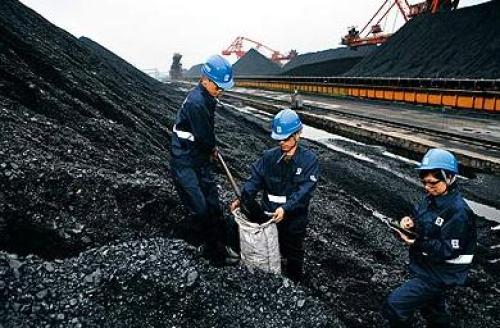How long can the coal industry develop?

The Chinese coal industry is facing significant challenges, with rising difficulties in turning around its fortunes. According to Zou Qingsheng, Deputy General Manager of Beijing Zhongrui Huifeng, the outlook for the sector remains bleak. Coal prices—both thermal and coking—are continuing to decline, and the entire industry is in a downturn that is unlikely to improve significantly this year. “The situation won’t change much, and prices may continue to fall,†he said in an interview. The weakness in the coal market isn't just due to internal factors like overcapacity, oversupply, and high import volumes. External pressures have also intensified this year, adding more strain on the industry. For instance, on February 15, the National Development and Reform Commission announced adjustments to railway freight rates for coal transportation. The base price for raw coal increased by 12.3%, from 13.8 yuan per ton to 15.5 yuan, while the second-tier rate rose by 18.2%. Similarly, the cost of transporting clean coal went up by 12.3% and 13.1% respectively. These changes have added to the logistical costs for coal companies, increasing their sales pressure. In addition, the implementation of the State Council’s "Air Pollution Prevention Action Plan" has further challenged the coal sector. By the end of 2017, four key regions—Beijing, Tianjin, Shandong, and Hebei—are expected to reduce coal consumption by a total of 83 million tons. This policy shift is putting even more pressure on coal producers, as demand from these major coal-consuming areas declines. Zou Qingsheng noted that this is another negative development for the industry, as reduced downstream demand could lead to higher inventory levels and further downward pressure on prices. On a broader scale, economic conditions are not favorable for the coal industry. Both China's domestic economy and the global economy are struggling, which means that coal demand is unlikely to rebound soon. “The coal industry situation is unlikely to reverse anytime soon,†Zou said. Despite the pressure, coal production capacity continues to grow. According to a report by Beijing Gao Hua Securities, construction of new coal capacity was still expanding rapidly. By the end of 2012, China had 1.1 billion tons of coal production capacity under construction. In 2013, coal industry fixed asset investment reached 526.3 billion yuan, and it was estimated that new capacity would reach 332 million tons in 2014, with a net increase of 212 million tons after accounting for closures and mine exhaustion. With rising production and falling prices, the traditional profit model of the coal industry is no longer viable. As a result, many companies are looking toward transformation—shifting towards coal chemical industries or other emerging sectors. Guotai Junan analyst Yu Qichen pointed out that the industry is moving toward innovative profit models driven by modern technology and changing consumer demands. The new coal chemical industry is expected to play a key role in China’s energy strategy, potentially driving annual coal demand of over 300 million tons. However, Zou Qingsheng remains skeptical about the long-term prospects of the coal industry. “From both a demand and policy perspective, the coal industry won’t see much improvement for a long time,†he said. While some companies have started transitioning, the current economic environment has made it difficult to achieve meaningful results. Analysts at China Merchants Securities also note that coal supply growth will slow down after 2016, with coal consumption growth stabilizing around 4% annually. However, Zou Qingsheng argues that this view may be overly optimistic, given the weak macroeconomic conditions and recent policies that are not supportive of coal expansion. He emphasized that the industry still needs to control production and continue eliminating outdated facilities to address the ongoing overcapacity issue.
Tapping Screw Thread,Hexagon Head drilling Screws,hexagon head wood screws,Self Drilling Cladding Screws
HANDAN ZHONGBAO IMPORT AND EXPORT TRADING CO.,LTD , https://www.hdzbfastener.com